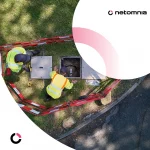ICO Rules BT and Openreach are Subject to UK Environmental Info Requests

Telecoms giant BT and Openreach are appealing a recent decision by the Information Commissioner’s Office (ICO), which made them subject to public information requests about their UK broadband network under the Environmental Information Regulations (EIR). The decision could potentially provide communities and rivals with a new avenue for extracting useful info.
The Environmental Information Regulations (EIR), alongside the Freedom of Information Act (FoIA), currently exist to grant the public the right to access “environmental information” held by public authorities. This covers any recorded information held by public authorities in England, Wales and Northern Ireland (Scottish public authorities are separately covered by the Environmental Information (Scotland) Regulations 2004).
Suffice to say that Openreach (BT) is a private company and thus, perhaps understandably, initially chose to ignore an info. request about their network – seemingly placed under the EIR – when it was made in September 2024. The request came from somebody who wanted to know more about the operator’s “fibre-based” broadband ISP network in the rural Lancashire (England) village of Nateby, which is home to less than 600 people.
Advertisement
“I request all your documentation and correspondence appertaining to the provision of fibre-based Internet communication to the village of Nateby, Lancashire, between August 2014 and August 2024,” said the original request. Just for context, Openreach’s FTTP broadband network passes nearby to this community, but doesn’t appear to enter the main area (it’s an intervention area under Project Gigabit and will hopefully be reached via the newer Call-Off 1 Contract).
The issue later became the subject of a complaint to the ICO, which in April 2025 ruled that “Openreach is subject to the EIR and was therefore under a duty to respond to the request“. Crucially, EIR requests do apply to some bodies that are not normally subject to a normal FoIA and the ICO ruled that BT “is a public authority for the purposes of the EIR” and so too is Openreach.
Openreach had attempted to argue that it was merely a private company carrying on a business for the benefit of its shareholders, but interestingly, the Commissioner ultimately took the view that Openreach “has been entrusted with functions that the state would normally carry out“. The ICO made the further point that many water companies are also private, yet are still considered “bodies performing functions of public administration for the purposes of the EIR“.
ICO’s Position on Openreach EIR Requests
The Commissioner is therefore satisfied that the state, acting via Ofcom, by virtue of issuing a direction to BT (or strictly speaking, deeming it to have already received such a direction) and, by extension, Openreach Ltd, thereby exercising its statutory powers under section 106 of the Communications Act, has entrusted both BT and Openreach Ltd with administrative functions. This entrustment has a clear basis in statute. He is satisfied that this is sufficiently similar to the process of appointment of undertakers under the Water Industry Act and that those undertakers are deemed to have been entrusted with the powers of the state.
The Commissioner considers that providing a telecommunications network is something that has an environmental impact. Just because a particular task isn’t being carried out for the benefit of the environment doesn’t mean that it does not have a environmental impact.
In order to create and maintain a network, Openreach Ltd can use mobile broadband – which involves emission of radio waves. However, in practice, most connections are made by the laying of new cables – usually underground. This requires the disturbance and removal of soil – meaning it directly affects the elements of the environment.
The Commissioner is therefore satisfied that Openreach Ltd has been entrusted, by the state, with functions of the state, related to the environment and that these functions have a statutory basis. The entrustment test is thus satisfied.
The issue is likely to give both BT and Openreach an additional layer of admin to tackle in the future, although it remains unclear how much useful information could actually be extracted using this approach. Openreach can still withhold details that are considered to be commercially sensitive or potentially a risk to national security, which could conceivably cover quite a wide remit.
Advertisement
In some other circumstances the network operator may also be able to refuse such a request, such if they don’t in fact hold the requested information, the request is too broad or the information is still being compiled etc. Furthermore, this also places a question mark over other network operators of scale and whether they could become subject to such requests too, although Openreach is currently the only one deemed to hold Significant Market Power (SMP) by Ofcom.
In addition, the original request doesn’t – at first glance – appear as if it was actually intended to seek environmental information (possibly a mistake?). The ruling only requires Openreach to supply “environmental” specific info. on that part of their network (i.e. land development, pollution levels, energy production, and waste management), which in practical ‘recorded’ terms will probably be quite limited.
However, the ICO’s decision is not yet the end of this story. ISPreview did ask Openreach for a comment on this decision and more details on what information they expected to be able to provide under the ICO’s ruling, but a spokesperson declined to provide that information because they’re in “the process of appealing the ICO decision“.
ICO Ruling on Openreach
https://ico.org.uk/action-weve-taken/decision-notices/2025/04/ic-340468-b4b0/
Mark is a professional technology writer, IT consultant and computer engineer from Dorset (England), he also founded ISPreview in 1999 and enjoys analysing the latest telecoms and broadband developments. Find me on X (Twitter), Mastodon, Facebook, BlueSky, Threads.net and Linkedin.
« Study Finds Brightness Reduction in Starlink v2 LEO Broadband Satellites






















































Utterly ridiculous. Another example of why Ofcom regulation must be cut back.
But this is not an example of Ofcom regulation, nor is it a ruling from Ofcom. The Information Commissioner’s Office (ICO) is a totally seperate body.
The basis of the ruling is made because of the excessive and unbalanced interference in BT by Ofcom.
It appears to apply to everyone with code powers, nothing specific to BT.
@Polish Poler: This specifically applies to BT by virtue of the level of Ofcom regulation on the company.
No, look at my post lower down in response to Ex Telecom Engineer
@Huw Saunders: There is no post by a “Huw Saunders” below.
The decision applies specifically to BT due to the way in which it is regulated by Ofcom.
“why is our economy so stagnant”, exhibit 309432. I’m sure this paperwork exercise is of great importance. I have previously joked that the planning permission process for a new mobile mast is treated the same way as building a toxic waste dump but it seems it’s really panning out that way.
I look forward to the same applying to the competition too, after all they are doing the same thing and in many cases receive government subsidy to do it.
I can’t even begin to understand what the ICO meant by “In order to create and maintain a network, Openreach Ltd can use mobile broadband”. Are they confusing mobile broadband with point to point microwave links, which OR may well use for some services?
The amount of money that is being wasted in this country on this nonsense must be absolutely ludicrous.
What a ridiculous waste of time and money. The country is drowning in red tape.
Openreach could save a lot of time by just telling the applicant if or when fibre is planned.
We need to stop creating two new problems to solve one existing one.
I’m pretty confident they already have and the person didn’t like the answer. Asking for ‘all your documentation and correspondence appertaining to the provision of fibre-based Internet communication to the village of Nateby, Lancashire, between August 2014 and August 2024’ isn’t exactly asking if FTTP is planned and when. This is ridiculous.
No, they probably did ask and got no response so thought right them give me all your info!
That won’t stop all the nonsense and nuisance requests for information from every activist and progressive cell around the country.
In the article it says:
“The Commissioner considers that providing a telecommunications network is something that has an environmental impact. Just because a particular task isn’t being carried out for the benefit of the environment doesn’t mean that it does not have a environmental impact”
Wouldn’t this therefore apply to any company installing Telecom infrastructure, such as Ducts and Poles? So any Altnet installing their own Infrastructure, like CityFibre, VMO2/NexFibre, and others, would be subject to the same decision. Add to that, any Communication Provider installing their own national backhaul infrastructure would also be caught under the same criteria.
“The ruling only requires Openreach to supply “environmental” specific info. on that part of their network (i.e. land development, pollution levels, energy production, and waste management)”
As far as administration is concerned, I suspect companies will produce a generic response to any request, with a software solution extracting any area specific local data from existing databases, and inserting it into designated field’s within the generic response.
Yes, my reading of the ICO Decision Notice is that Openreach has been granted “special powers” under the Communications Act, these being the so called Code Powers that give them the right to undertake street works etc. In effect, this is interpreted as meaning that they have been designated by “the state, acting via Ofcom, by virtue of issuing a direction to BT (or strictly speaking, deeming it to have already received such a direction) and, by extension, Openreach Ltd, thereby exercising its statutory powers under section 106 of the Communications Act, has entrusted both BT and Openreach Ltd with administrative functions.” That brings them within scope of the EIR and, by extension, every other comms provider with Code Powers……
Spot on Darren. As a home buyer, I get to see data about plans for schools, crime, NHS, water…
Why can’t I see the plans for the internet? If I see a place isn’t going to get fast internet until 2026, I don’t want to live there.
Really, you can’t wait for a few months? If the property had a dead slow broadband like ADSL, then maybe I could understand, so if it had a decent FTTC you would not want to know?
Amazing, I wonder how some of the people on here would get by if some of the tech we have now, died, and you were left with just a normal TV and physical media for music and other stuff.
Don’t get me wrong, I find the net useful, playing music on my echo units is great, being able to stream stuff I want to watch is good, but if my net went down for a few days, I think I could manage. Got a hifi with CDs and cassettes, got a Blu-ray player for video.
checking bank statements would be more of a pain and that sort of thing, but I could cope.
You can only be sure you will have a broadband service when it is actually installed. Plans change.
Why would you need a TV, wouldn’t radio be fine? Why radio? Why would you need electricity? Indoor plumbing?
Grandpa: to our youth, the ones you probably grumble cantankerously at and look down on, linear TV and physical media are obsolete. I appreciate you’re the centre of the universe and appear utterly incapable of seeing anything from anyone else’s point of view but give it a go, maybe you’ll surprise yourself.
@Polish Poler, you really are a nit and that is being polite.
I appreciate that we need internet in this day and age, but come on is that difficult to wait for super-duper speed, which no doubt they will never use the full benefit of anyway.
Yes, I am the centre of the universe, I really am.
I don’t use linier TV, and have not for nearly 10 years, don’t have a Tv licence for a start, watch most things online, mainly with a slower broadband connection, only had fibre for 2 years. I like the radio, I listen to it on my old FM/Dab radio, but prefer FM, because DAB is awful.
Sometimes it is nice to go back to simpler times, but since most youngsters can lift their head up from a phone they will never know.
Congratulations on completely missing the point, which just to be clear was to ask who you are to decide when that simpler time should be.
People should be able to make their own decisions not conform to what you think they should do. You complain a ton about not wanting to do what others think you should, extend them the same courtesy.
Because it is a business, not an agency of the government.
I knew the BT/Openreach fanboys would be out in force.
Openreach is a large company and do a fair bit of knocking things around for their network over the country, so people have a right to know what damage it does.
Yes, I do think other network builders should answer to the same questions
Fair enough on the second paragraph, I disagree and point to other ways private companies may be held to account.
On the first paragraph: pathetic.
The Bt fanboys are pathetic, supporting a large company that makes millions and crying if something goes against it.
I will stay with a service as long as it does what I need, loyalty to companies these days is nonsense, because they don’t care about us, all they care about is money, money, money and how to make more money on top of their millions.
It is great that we have some competition in the network world, just a shame it is not in more places.
You are the pathetic one, along with the fanboys on here.
Surely you can do better than ‘No, you’?
Go back through my comments I’m certainly not a BT fanboy. You are very clear you despise them and with the usual egocentricity think everyone who doesn’t agree with you is a fanboy. Of course you then do the usual of making a perfectly reasonable point that completely undermines the other bit.
Agree loyalty to big companies is nonsense, all they care about is indeed money. Hating big companies also nonsense, all they care about is money. Taking it personally either way is, obviously, equally weird.
Fun as turning your words against you is time to work.
@AD – ‘It is great that we have some competition in the network world, just a shame it is not in more places.’
What % have a choice of provider? And how many ISPs are on the Openreach network to choose from? Altnets have had 40 years to build a network.
I’d say in the recent years Altnet activity has probably had more impact on the environment than OR and why does
If you look at OR its mainly replacing existing poles and renovating decaying manholes. The disturbance is actually decreasing as OR probably have enough duct space already in this fibre era.
As a general point if its that important then why does it always only apply to BT. VMs existing network not matter then.
In addition any information of our UK infrastructure state or private needs to be treated appropriately for security and resilience especially not widely shared with people who do not need to know or easily gained by bad actors.
It’s already been established that water companies are not subject to this regulation, so I’m intrigued as to how the ICO have determined that laying duct and disturbing soil is materially different from laying pipe and disturbing soil, on top of all the other things that water companies do.
This should not be allowed; this is a private business. All requests for information should be made to the regulator and only replied to if the request relates to an area that falls within the regulator’s existing collected data sets.
you would think it would have been easier just to reply to the original question in general terms and its then over. instead BT/Openreach will not talk to the public, which is funny, that being communications companies they refuse to talk. own goal here by BT